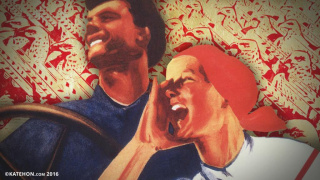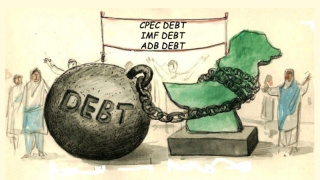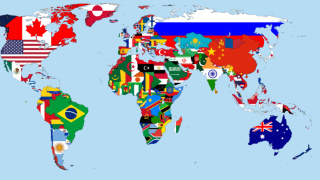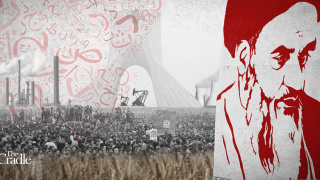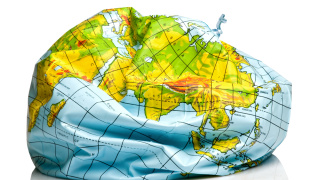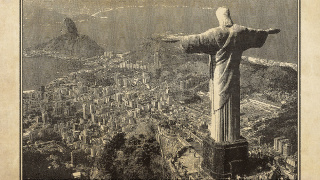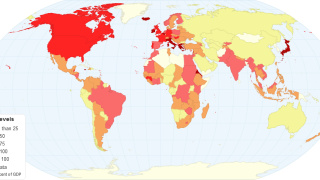WHY WE ARE WHERE WE ARE – PART ONE
Margaret Thatcher is supposed to have once said that “the facts of life are conservative”. An equivalent for libertarians is “the facts of life are Austrian”. We may well dispute the justice, inevitability or even desirability of the libertarian ethic of non-aggression, but one cannot escape the fact that the corpus of economic law, derived from the self-evident proposition that individuals act, is undeniably true. So however much you may yearn for some form of centralised economic planning or state management to abolish all “exploitation” before building castles in the land of milk and honey, this economic law cannot be defied for ever and, eventually, reality must come back to bite you on the arse. Amongst the myopia of COVID-19 and the furore of the culture war, a broader perspective of the era we are living through – and probably have been living through since 2008 at the latest – will reveal a culminating fight between a massive reassertion of economic law on the one hand and increasing attempts to continue the defiance on the other.
This essay, the first of two parts, will explore the paths that have been taken prior to our arrival at the political, economic and social situation in which we find ourselves in the early twenty-first century. In Part Two we will look specifically at the ongoing culture war before examining the consequences of all of these dynamics. From this, readers may be able to see how year’s this calamities – barely imaginable just six or seven months ago – have resulted from the choices that have been made in the past.
The Political Means vs. the Economic Means
In a previous essay, we explained that humans can seek to fulfil their needs vis-à-vis other humans through one of possible two ways: peaceful co-operation on the one hand or violence on the other, or what Franz Oppenheimer called the “economic means” versus the “political means”. In short, working with them or stealing from them.1 We presented also the following table (Fig. A) that demonstrates the tendencies to which humanity may gravitate if it chooses to follow either a preponderance of the political (violent) means or of the economic (peaceful) means. These tendencies result from the fact that the logical outcome of increasing violence is the complete subjugation of the entire world to the will of a single person whereas the logical outcome of increasing peace is the perfect autonomy of every individual2:

Fig. A
Perfections of each extreme have obviously never been realised. There has always been peaceful co-operation and there has always been violence; it is merely the degrees of these that have varied. We like to think that violence is being continually diminished, particularly when we ponder some of the most barbaric episodes of our past. Indeed, we typically believe that humanity’s progress is linear, accomplishing ever greater heights of wisdom and prosperity while banishing the horrors of the yesteryear to distant memory. However, while we can hold out some hope that the overall trajectory is upwards, it is more likely that we are doomed to repeat various cycles of oscillation between the economic means and the political means. Thus, prevalence of the tendencies of each will emerge as stronger than those of the other during different periods – tendencies which may be characterised also as an ascendance into civilisation and lapse into barbarism respectively. Great civilisations of the past have all had their rise and their fall, the latter often characterised by the loss of knowledge, abilities and values, and so it isn’t necessarily the case that we are becoming evermore perfectible as time elapses – and nor is there any reason to expect our own civilisation to be immune from this oscillation.
In fact, it is all too easy for us to overlook the brevity of our current epoch that is distinguished by economic, intellectual, cultural and scientific advances that are far in excess of anything that has been seen before. Those who are adamant on castigating the West for its supposed brutality, oppression, racism and patriarchy might like to remember that the left hand side of Fig. A (on which we can expect such tendencies to be endemic) has been the norm for most of human history. It was the West, on the other hand, that developed (and implemented) the moral and philosophical apparatus that rejected these abominations, embracing instead a view of all humans as possessing equal moral worth regardless of race, gender, or social status. Thus was paved the way for the eradication of violence and for the ascendance of social co-operation under the division of labour. Indeed, the irony of those who criticise Western civilisation is that they have to resort to Western values in order to do so. The fact that, in spite of their dissemination by the West, such values can be in short supply in much of sub-Saharan Africa and the Middle East simply shows their tenuous grip on the human imagination.3
The full fruition of Western progress has been even more recent. Significant and sustained increases in economic prosperity have been made only since the advent of industrialisation, which was just over two hundred years ago. Population figures suggest the same. To put this in some personal perspective, my Great-Grandmother was born in the last decade of the nineteenth century and died a nonagenarian when I was a child. We can surmise that her own great-grandparents would have been born sometime between 1800 and 1830, and might well have been alive during her childhood. In principle, therefore, she could have relayed stories to me that she had heard first hand from someone who knew what it was like to have lived in the middle of the Industrial Revolution. At the age of thirty-something, I am one of the youngest people alive today for whom this is possible, and so the vast majority of us are a mere two degrees of separation from somebody who lived before the manifold increases in the typical standard of living that we all take for granted. We are, therefore, extremely lucky to be living in an era that is unique, rather than typical, of the history of human existence. But such uniqueness should also alert us to the fact that our civilisation and all of the wonderful gifts it has brought us are not features of permanence, nor are they the products of a force of nature. Rather, they have had to have been worked for through a combination of ideas and discovery, and underpinned by values that are nurtured and cared for. In the ominously prescient words of Spanish philosopher José Ortega y Gasset:
Civilisation is not “just there,” it is not self-supporting. It is artificial and requires the artist or the artisan. If you want to make use of the advantages of civilisation, but are not prepared to concern yourself with the upholding of civilisation – you are done. In a trice you find yourself left without civilisation. Just a slip, and when you look around everything has vanished into air.4
Unfortunately, the fact that states and their citizens have willingly accepted a vast economic contraction to “protect” us from COVID-19 – as if “the economy” is simply something that can be put on hold while everything we want to buy should still be “made available” – demonstrates the fact that such concern for the upholding of civilisation is extremely lacking. The recent resurgence of Black Lives Matter marked by the toppling and defacing of statues and monuments is, moreover, an over-boiling of the decades long ascendance of cultural lefitsm, which has successfully engrained a deep suspicion, if not outright hostility, towards Western history, values and culture in the hierarchies of state, media and academic institutions.
Why do we Destroy Civilisation?
It may be difficult to formulate a comprehensive answer as to why humanity seems motivated to destroy the very values upon which its highest achievements depend. As we mentioned also in the same, previous essay, societal change relies upon a combination of the prevalent ideas, conditions and aspirations that exist at any one time. Causes and effects are often interchangeable, with one cause feeding an effect which can then serve to augment the original cause, or a bad effect becoming the cause of a turn towards a new direction. Indeed, everything we listed in Fig. A above may emerge as a consequence of either an increase in peace or an increase in violence, and/or may serve as a causal factor that strengthens and nourishes one of those directions. Thus, any attempt to find a primary, foundational cause for the trajectory of human action at a particular time is extremely difficult.
However, one universal truth is that each human is conditioned to fulfil his needs at the lowest possible cost. Perceptions of which of the two routes – economic/peaceful or political/violent – furnish the lowest possible cost are likely to change over time. When one starts from a position of near universal paucity, social co-operation – the peaceful/economic means – is likely to provide the most fruitful path. After all, it is probably far too much effort to set about plundering other people when they have nothing substantial that is worth taking. In a milieu of general prosperity, however, it becomes more attractive for people to attempt to loot wealth from others rather than seek to produce it themselves.5 It is this dynamic that is likely to have played a major role in the current transition of our society from the dominance of the economic means to that of the political means.
The Decline of the Economic Means and the Ascendance of the Political Means
Assessing whether a given social phenomenon has its roots in peace or in violence also has its difficulties. At least until very recently, libertarians and other free market enthusiasts have often fallen into the trap of assuming that actions by private individuals and entities (such as big business) are always justified and/or optimal, whereas actions by the state are always unjustified and/or sub-optimal. However, this is true only under the assumption that a situation of perfect liberty exists – an assumption we have always been keen to stress in previous essays when attacking typical criticisms of capitalism.
For instance, it is true that, in such an idyll of perfection, the origin of any wealthy employer’s fortune must have been serving the needs of consumers. If this employer pays a wage to an employee, he does so because the latter prefers to receive his remuneration in advance of the sale of the produced goods, and because he wishes to be insulated from business risk (i.e. he gets to keep his wages even if the business fails). In return for this guaranteed and timely income, the employer gets to keep any profit or suffer any loss. The relationship is, therefore, mutually beneficial, and the existence of profit is not exploitative.
In the real world, however, the perfect market does not exist in lieu of a market hampered by state interference. So we know that not all wealthy, private employers have attained their fortunes through voluntary transaction as opposed to regulatory privilege or direct state subsidy – and even the corporate form itself is a creature of the state which, it has been argued6, serves to concentrate wealth and resources. If, therefore, the bulk of wealth is held in the hands of those who have acquired it through state privilege, it is difficult to appraise the employer-employee relationship as entirely mutually beneficial. The only reason why, in such a situation, potential employees come to the table with high time preference and aversion to business risk is because they have been unjustly deprived of wealth as a result of state privileges granted to the propertied classes.7
The same is true of free trade, which has been blamed for the shipping of jobs overseas to China, leaving behind rotting industry and the transformation of Western economies into financialised service providers. An unqualified argument that points out the destructive nature of tariffs may be cogent, but it fails to address these very real concerns by assuming that trade is, in fact, free. In particular, it fails to account for the fact that the West presently enjoys the luxury of being able to issue heavily demanded reserve currencies such as the Dollar, the Euro and the Pound, permitting us to simply print money in order to buy what we need from abroad instead of having to really pay for it with goods in kind. It has always been vital, therefore, for libertarians to exercise caution when illustrating theory through historical examples, or to explain historical phenomena by way of theory. Certainly today, the rampant privileges of bailed out banks and the big tech sector are obvious, with only the most naïve of commentators suggesting that everything these corporations do is absolutely fine. Perhaps, however, we have been more reticent in applying the same kind of scepticism to the development of the market economy as a whole.8 Indeed, it is for the reasons outlined here that (what were once called) economic liberals and socialists can often talk past each other owing to their differing appraisements of the historical record, with each viewing that record as illustrative of their particular theory.
Nevertheless, it is not unreasonable to make the very broad conclusion that these past two hundred years have witnessed a gradual shift from a preponderance of the economic means to a dominance of the political means, with the watershed most likely being the First World War. The unique combination of circumstances around 1800 gave way to an unprecedented growth in the division of labour and capital accumulation. In Britain, Enlightenment philosophy and the emphasis on reason and scientific discovery created the impetus to pursue not only industrial invention and machinery but also to sweep away the remnants of feudalism and mercantilism in favour of liberalism and laissez-faire. These conditions were aided by a ready supply of metal ores, coal reserves, seaports and navigable waterways, while the post-1688 constitutional monarchy assisted in creating a balance of power that helped in protecting property rights and the rule of law. At the same time, increasing food efficiency following the Second Agricultural Revolution served to release a surplus of labour that was eager to seek new opportunities in factories and urban centres.
Parasitism and parasitic classes have always existed, of course, but it is likely that the kinds of heavy industry and mass production ignited during the Industrial Revolution would gradually create a class of people for whom the redistribution of wealth would prove personally enriching, and thus conscious moral, intellectual, and scientific theories could be devoted to justifying that end. Indeed, socialism must rely on a pre-existing stock of wealth and capital goods which can be confiscated and redistributed, for the reason that state or “common” ownership of the means of production must presuppose – quite obviously – the existence of means of production. It is no accident, therefore, that modern socialist theories had their genesis during the unprecedented levels of wealth creation of the nineteenth century.9 As with most major societal shifts, however, much of the driving force came not from the very bottom of the social pecking order but, rather, from the layer just below the top, which, in this case, consisted of middle class intellectuals and onlookers. Indeed, the prominent socialist theorists of the period, from Saint-Simon and Fourier to Marx and Engels, as well as social reformers such as Lord Shaftesbury, Charles Dickens, and Sidney and Beatrice Webb, scarcely knew a day’s hard labour, while the progressives in the United States, similarly, consisted of comfortable, well-educated urbanites who realised that the state now had at its disposal the means for accomplishing widespread change.
This transition is compounded by the fact that the people who built civilisation from the bottom up are gradually replaced by descendants who are simply born into it. These latter people are so accustomed to an elevated level of productivity that, having known little else, this miracle is simply taken for granted as if it is a gift of nature, while the values that are required to bring it about are either forgotten or deliberately overridden. Thus, abundance lends people the luxury of abandoning the prior anchors that helped to create it, a luxury aggravated by the fact that, in a wealthy society, individual choices have a lower marginal impact. Today, sacrificing a freedom here or there may result in having a little less wealth rather than having more, but it won’t mean the difference between starvation and survival. Indeed, given that relatively inexpensive food, clothing, energy, entertainment and so on has relieved people of what were once life’s primary hardships, the relative weight of different values has changed, with people more willing to trade in some of their freedom in exchange for security and relief from responsibility. What does it matter if the state is spying on you through your mobile phone when you have plenty to eat and Netflix on tap? As Aldous Huxley showed us in Brave New World (and in contrast to most other dystopian depictions) it is quite possible for people to be un-free but also comfortable, even happy. Particularly as capitalism, in spite of the assaults it has suffered, has proven to be remarkably resilient, this is only made worse by the fact that it can actually take years or even decades before the result of changing values is fully realised, with those responsible possibly never having to bear the ultimate cost.
This phenomenon should not be underestimated, and neither is it confined to material prosperity. In fact the seeds were probably sown much earlier. As we have explored before, a key ingredient for the flowering of Western civilisation is likely to have been the delicate balance between faith and reason achieved by pre-Reformation Christianity – the ability of humanity to better itself through the application of its mind to the world around it, yet bounded by a “higher”, moral order. However, the elevation of man’s reason, the ability to explain complex phenomena of the world without resort to the will of deities, plus the emphasis on pure faith following the Protestant Reformation, all served to diminish the importance of Christianity in human progress. For when unbridled reason was able to explain and create so much what need did we have for faith? When so many of nature’s obstacles have been conquered what was the purpose of old, outdated and seemingly superstitious values? Consequentially, it was man himself who ascended to the role of omnipotent power in the universe, leading to the belief that human society – its morals, its laws, its values, its relationships – can be engineered like a machine. Thus was the ground fertilised for some of the most terrifying and devastating regimes of the twentieth century.
The late Ralph Raico describes some of this change of incentives at the end of the nineteenth century, and the consequent attack on what were known then as liberal values:
[F]or reasons still unclear, the tide began to turn against the liberals. Part of the reason is surely the rise of the new class of intellectuals that proliferated everywhere. That they owed their very existence to the wealth generated by the capitalist system did not prevent most of them from incessantly gnawing away at capitalism, indicting it for every problem they could point to in modern society.
At the same time, voluntary solutions to these problems were preempted by state functionaries anxious to expand their domain. The rise of democracy may well have contributed to liberalism’s decline by aggravating an age-old feature of politics — the scramble for special privilege. Businesses, labor unions, farmers, bureaucrats, and other interest groups vied for state privileges — and found intellectual demagogues to rationalize their depredations.
[…]
By the end of the nineteenth century, liberalism was being battered on all sides. Nationalists and imperialists condemned it for promoting an insipid peace instead of a virile and bracing belligerency among the nations. Socialists attacked it for upholding the “anarchical” free-market system instead of “scientific” central planning. Even church leaders disparaged liberalism for its alleged egotism and materialism.
This decline in liberal values coupled with the growth of socialism (as well as other forms of statism such as the Bismarckian welfare state) and the consequent hampering of domestic business and international trade in an imperialist and colonial milieu would all help to drive the great powers towards the devastation of world war by 1914. Those four, cataclysmic years saw not only the Russian Revolution but also the de facto end of the classical gold standard, and a level of state interference that would provide a model for the state expansion in later decades. Continues Raico:
[T]he Great War fostered statism in every form. In Europe and America, the trend towards state intervention accelerated, as governments conscripted, censored, inflated, ran up mountains of debts, co-opted business and labor, and seized control of the economy. Everywhere “progressive” intellectuals saw their dreams coming true. The old laissez-faire liberalism was dead, they gloated, and the future belonged to collectivism. The only question seemed to be, which kind of collectivism?
Having passed this watershed between the preponderance of the economic means and that of the political means, the illusion of “freedom” versus “tyranny” in the great conflicts of the twentieth century was, nevertheless, stretched out until the fall of the Berlin Wall. But, as Raico suggested, such battles were really between different forms of the political means rather than fights for a restoration of the economic means – i.e. between explicit forms of state control in fascist and communist dictatorships on the one hand and camouflaged versions such as the democracies on the other. In fact, Nazism and fascism are really cut from the same cloth as Keynesianism/inflationism/New Deal era state management – which, incidentally, explains why, prior to launching his foreign aggressions, Hitler encountered such little ideological opposition during the 1930s, and was even lauded on occasion.
Having emerged victorious from World War II, Western-style inflationism, welfare statism and democracy went on to fight direct socialism/communism of the East – with the fight itself, quite ironically, leading the former countries to adopt more and more of the characteristics of their opponents by sealing their gradual transformation into national security states. Eventually, however, direct socialism exhausted itself in the case of the USSR or was reformed away in the case of China. These events, culminating in the late 1980s, we might term the first great re-assertion of economic law – the failure of direct and overt forms of state control, even though these systems were little more than enhanced versions of the interventionism experienced in the West, rather than truly socialist economies.10
Following the ascendance of the Chicago School, Monetarism and so-called “Supply-Side” economics, reforms in the US and Britain also saw a general purging of nationalised industry, high taxes and crippling regulation in the final quarter of the twentieth century. Indeed, as freedom lovers with a penchant for categorising anyone to the left of Margaret Thatcher as a “socialist”, it is easy for us forget that direct forms of socialism are, today, rejected in the mainstream also. For instance, liberal-political-hack-masquerading-as-economist Paul Krugman will claim, quite unashamedly, that he is “a believer in the market economy. I’m a believer in capitalism. I want the market economy to be left as free as it can be.” The EU treaties have put deliberate roadblocks in the way of nationalisation and state aid to corporations – something which, incidentally, may have presented something of a quandary to the coupling of the Labour Party’s economic programme with its “Remain” stance had it won the 2019 General Election. With Britain’s National Health Service being an obvious exception, direct socialism has not been popular for the past forty years, and, today, only a handful of mostly minor states are explicitly socialist, many in name only.
What we have been left with instead is a form of the political means that leaves much of the economic means nominally intact so as to overcome the problems of economic calculation and incentivisation that plagued direct forms of socialism. It is, however, based upon at least three critical pillars of sustenance: democracy, welfare statism, and, perhaps most importantly of all, paper money. Our contemporary political economy could be labelled many things: state corporatism, state capitalism, crony capitalism, neoliberalism, social democracy etc. But, regardless of its name, this ingenious combination has permitted the political means to be continually enriching to its beneficiaries while at the same time camouflaging its real nature in a cloak of legitimacy and the illusion of general prosperity. So successful has this been that, at the close of the twentieth century, political scientist Stephen Holmes was able to utter the following, unashamedly candid assessment of what he refers to as “liberalism”:
Limited government is, or can be, more powerful than unlimited government […] By restricting the arbitrary powers of government officials, a liberal constitution can, under the right conditions, increase the state’s capacity to […] mobilize collective resources for common purposes.
[…]
It now seems obvious that liberalism can occasionally eclipse authoritarianism as a technique for accumulating political power. However temporary, the current world supremacy of liberal-democratic polities would be incomprehensible if liberalism really were […] a quasi-anarchical war against the state. Liberalism is not allergic to political power […] [F]or good or ill, liberalism is one of the most effective philosophies of state building ever contrived.11
In facilitating this increase in state power, the primary victory of the first of our three pillars – democracy – is to have destroyed the distinction between the state and the people. Faith in the ballot box has endowed the actions of the state with a thick veneer of legitimacy, because every such action is now an action of the people, by the people and for the people. In short, it achieves collectivism through the back door. Welfare statism, on the other hand, allows ordinary people to partake in the political means, thus achieving a bulwark of dependence and adherence to the system. Finally, paper money, in addition to providing funds for state programmes and initiatives through borrowing and money printing as opposed to direct taxation, allows the politically well-connected to achieve and sustain their control over the means of production through privileged access to cheap credit and to direct state bailouts, as well as the ability to shape and influence state regulation to the disadvantage of smaller competitors.12 To all of this we might as well add the provision of state education which has succeeded in producing a docile and largely uncritical populace that lacks the capacity to challenge its exploitation. In short, the parasitic and destructive nature of the political means has been camouflaged by a combination of moral disguise, bribery and inflation, a camouflage which, owing to the absence of direct state control, allows all of its shortcomings to be blamed on “capitalism”.
Unfortunately, these arrangements have not been immune to the logical progression of society towards the characteristics that tend to result from adopting a preponderance of the political means – characteristics which we presented in Fig. A above. This is something that we shall explore in more detail in Part Two, but a few words are necessary to explain how this form of statism was progressing at the dawn of the twenty-first century.
Libertarians often display an inconsistent attitude towards the state. On the one hand we believe it to be so wracked by incompetence and inefficiency that it cannot even run the post office; yet on the other we like to think of it as a vast, monolithic conspiracy that is hell-bent on reducing us all to masked, micro-chipped, vaccinated slaves in a globally governed ant-heap. True enough, these positions are not necessarily mutually exclusive. It is certainly the case, as Hayek pointed out in The Road to Serfdom, that the worst people tend to rise to the top in politics, and that there are some very evil and amoral people within the deep state apparatus who have grasped the logical direction of the political means, using any available opportunity to push the world towards its fulfilment.13 Moreover, it is likely that a select handful of individuals (or small groups of individuals), can, through money and patronage, exert an influence over the state that is disproportionate to their numbers. But it does not follow from all of this that these people have at their fingertips a well oiled and polished machine that can be directed in any way that they want. They certainly do not have the ability to control the many unintended consequences of the state’s actions, although they may try to disguise them or downplay their significance.
A far more convincing theory that unites both of these elements is that the fundamental trajectory of the state owes itself mostly to blundering reactions to events that serve to push it in the direction of the natural tendencies that we described in Fig. A. As we learnt from Ludwig von Mises, any interference by the state that is designed to achieve a particular purpose ends up causing a problem, or a distortion, that is at odds with the desires of consumers. In order to justify its necessity, the state always possesses a persistent bias towards doing something rather than nothing, and so this problem then begets another interference, which causes further problems and further interference, and so on. What follows is a permanent ratchet effect in which individual freedom is continually reduced as a response to an ever greater number of problems. After all, if all you have is a hammer then every problem looks like a nail, so when confronted by an unusually problematic nail your only solution is to make a bigger hammer and hit harder. But the state is also inimical to competition from other centres of authority and jurisdiction which can retain the freedom to adopt alternative policies (for instance, looser tax and regulatory regimes) – freedoms which will demonstrate with clarity the failure of state interference. There is, therefore, a strong incentive for states to harmonise their policies and to get all of the hammers hitting the nails in the same way – something we have seen all too disastrously with COVID-19, when seemingly everyone everywhere went into lockdown within the space of three weeks. Ultimately, globalisation in the form of the consolidation and centralisation of power, not only in the state itself but also in trans-national institutions such as the EU, United Nations, IMF, and – as we have seen recently – the WHO, plays itself out as part of the logical progression of the preponderance of the political means.
Critically, however, these tendencies have been allowed to progress as far as they have done precisely because of what Holmes referred to as the “world supremacy of liberal-democratic polities” – that, for a generation, such polities have encountered no serious ideological challenge that may have otherwise caused this progression to stumble. Indeed, if it is universally agreed that a liberal democratic constitution is, in and of itself, a guarantor of rights, freedoms and prosperity as a result of its internal structure (“checks and balances” etc.) then the impetus towards consolidation is clear. For if the whole is able to act as this guarantor then what possible justification could there be for separate governance? Surely the only reason could be the desire to depart from values that a liberal democratic polity are supposed to protect?14 Thus, one reason why Brexit and the election of Trump were so shocking to those enveloped within the liberal-democratic milieu is that the superficial veneer of harmony and co-operation – especially after a century of war – seemed to be part of the natural ascendance of humanity, the rejection of which must surely be a retrogression.
Conclusion
Having surveyed the main political and economic drivers towards to the close of the twentieth century we will, in Part Two, examine the culture war that has resulted from these drivers, and how all of these elements – as well as the revolt against them – have morphed into the situation in which we find ourselves today.
* * * * *
Notes
1A third possibility – complete atomistic existence – can be discounted owing to its adoption by only a handful of hermits. It is important to realise also that “needs” are not solely material and can concern intangibles such as happiness, avoiding mental distress or the adoption of a particular moral code.
2Since its last presentation, we have added to this table “Moral and Legal Positivism” (that moral propositions and legal norms can be wilfully posited or constructed) on the left and “Natural law” (that such propositions must be derived from the application of man’s reason to the world around him) on the right. Some libertarian commentators, such as the blogger “Bionic Mosquito”, have sought to redefine the “left-right” divide in politics as those who adhere to natural law and those who do not. While this observation is cogent, the difference is part and parcel of the divide between the political means and the economic means.
3As one commentator from the 1970s put it with regards to economic ideas: “That nonpurposive social organizations will naturally evolve, and that an undesigned order can be the product of self-regarding acts are radical ideas in Western thought. These ideas run counter to the dominant approach to social questions, and were in ascendancy for only a brief period in Western intellectual history. It is not, then, entirely surprising that in economics these ideas have not gained complete acceptance; and that among the general public […] they are scarcely understood at all.” Gerald P O’Driscoll Jr, Spontaneous Order and the Coordination of Economic Activities, Journal of Libertarian Studies, Vol. 1, No. 2 (1977), 137-151 at 143.
4José Ortega y Gasset, Revolt of the Masses, 61.
5Once again, we should stress that needs and costs can be intangible as much as tangible, including the benefits and burdens of fulfilling of a certain moral code. As we shall see, changing perceptions of these benefits and burdens can help to explain the moral/cultural rise and fall of a society.
6See, for instance, Piet-Hein van Eeghen, The Corporation at Issue, Part I: The Clash with Classical Liberal Values and the Negative Consequences for Capitalist Practice, Journal of Libertarian Studies, Volume 19, No. 3 (Summer 2005), 49-70.
7This should not be taken to invalidate the notion that, in a complex economy, there is likely to be a division between labour that earns wages and entrepreneurship that earns profits. The point is to question the extent of the division in the existing economy, and it may well be likely that a true free market sees a greater number of smaller organisations, local worker or consumer co-operatives and active owner-managers in comparison to global, passively owned behemoths.
8A noted scholar who has questioned the historical development of capitalism, albeit to reassert a version of the labour theory of value, is Kevin Carson. See Kevin Carson, Studies in Mutualist Political Economy, Fayetteville, Ark. (2004). Austro-libertarian critiques of Carson’s work by Robert P Murphy, Walter Block, George Reisman, and Roderick T Long (together with rejoinders by Carson) can be found in the Journal of Libertarian Studies, Volume 20, No. 1 (Winter 2006).
9For an earlier example of these dynamics, Rothbard ascribes the birth of the modern nation-state to the “expansion of medieval production and trade” between the eleventh and fourteenth centuries that resulted in an accumulation of wealth and capital that “provided great temptations to Power to seize and divert that wealth for its own nonproductive […] purposes”. Murray N Rothbard, Conceived in Liberty, Ludwig von Mises Institute (2011), 7.
10Randall G Holcombe, prompted by Martin L Weitzman, speculates that “the Soviet Union may have collapsed because its leaders took neo-classical growth theory [growth resulting from the accumulation of human and physical capital] too seriously”, omitting the critical factor of entrepreneurship. See Randall G Holcombe, Entrepreneurship and Economic Growth, The Quarterly Journal of Austrian Economics 1, No. 2 (Summer 1998), 45-62 at 59 fn 16.
11Stephen Holmes, Passions and Constraint: On the Theory of Liberal Democracy, The University of Chicago Press (1995), Preface (emphasis in the original).
12This situation has been exacerbated by a further consequence of inflation, which is the need for private savings and retirement funds to be passively invested in equities and bonds rather than in cash, thus concentrating voting rights in corporations in a handful of large financial services companies.
13Indeed, all of those who are alleged to be dedicated to a so-called “New World Order” by accomplishing the complete abolition of national sovereignty are likely to be of this ilk.
14For an illuminating discussion of liberal democratic views in this regard, see Andrei Kreptul, The Constitutional Right of Secession in Political Theory and History, Journal of Libertarian Studies, Volume 17, No. 4 (Fall 2003), 39-100 at 44-54.


